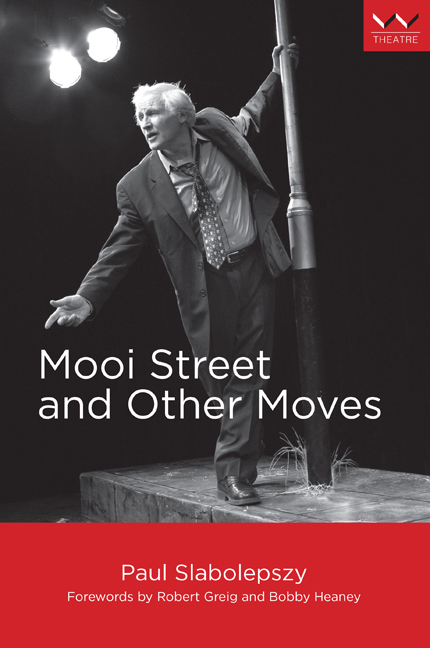Introduction
Published online by Cambridge University Press: 21 March 2018
Summary
Paul Slabolepszy is the cartographer of the white male soul facing the abyss. Better than any other South African playwright, he has depicted the dreams, hopes and insecurities, and violences of white male South Africans through the doom-laden days of apartheid's decline. Many of his plays are images of that decline: they convey uniquely the atmosphere of paralysis and paranoia of that time. More recently, in plays like Mooi Street Moves, The Return of Elvis du Pisanie and Pale Natives (1994, not included in this collection), Slabolepszy has depicted the effects of social and political change, his theatre shifting from a social to a psychological focus and, in the process, maturing.
If, as Dan Jacobson said, quoting Olive Schreiner, white South Africans are ‘lower-middle- class philistines’, in Slabolepszy's hands they tend to be depicted as ‘lower-middle- class nihilists’. The Schreiner observation is useful, if only in indicating that the preoccupations of two writers with extensive allegiances to England are not the preoccupations of a Slabolepszy. Slabolepszy is one of a generation of post-colonial writers.
The cumulative effects of time, as well as political and cultural isolation, have made the class and cultural labels which Schreiner used and Jacobson approved seem an historical curiosity, useful only in suggesting the distance between Slabolepszy's world and that of his predecessors.
In Slabolepszy's world, ‘overseas’ is as remote and insubstantial as a TV sitcom, which in fact forms the images of what used to be called in South Africa ‘the outside world’. In Saturday Night at the Palace (1982, not included in this collection), Forsie, who has never been to the sea, insists confidently that ‘everyone knows Jo'burg’. He and Vince imagine overseas as Hollywood.
Throughout Slabolepszy's plays, references to the TV series, Dallas, occur: this, rather than the humane literacy of Bloomsbury, is the characters’ reference point. To Slabolepszy, the implied comparisons which Jacobson and Schreiner make – between here and there, local and foreign, colony and parent country, province and metropolis, along with the class consciousness – are irrelevant. They are not part of his landscape yet Slabolepszy is aware of both the comedy and the pathos in the cultural references of his characters.
The Slabolepszy landscape should be described. Like others of his generation, most of Slabolepszy's life was spent under Nationalist Party rule.
- Type
- Chapter
- Information
- Mooi Street and Other Moves , pp. 1 - 12Publisher: Wits University PressPrint publication year: 2017



